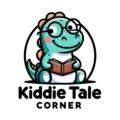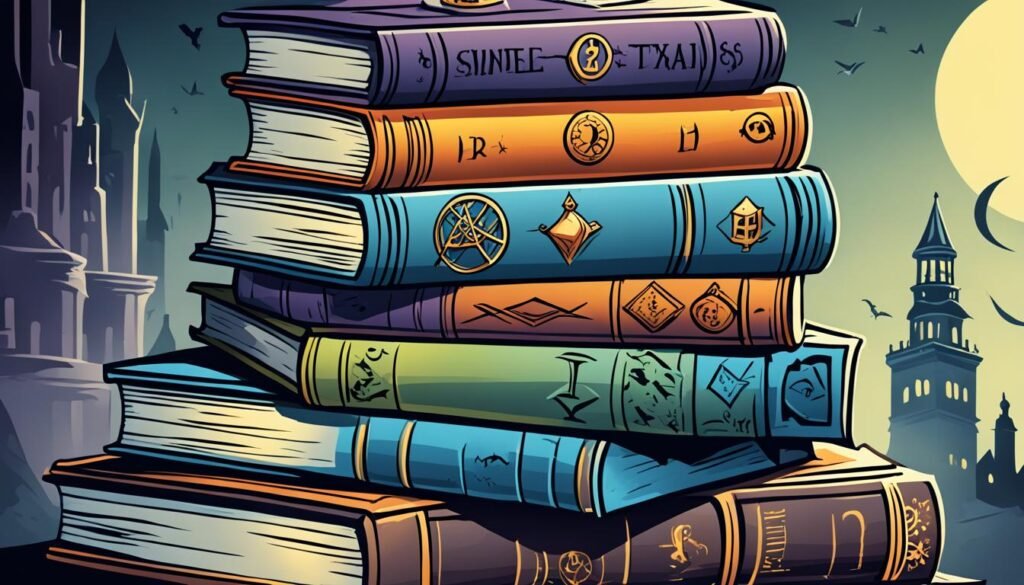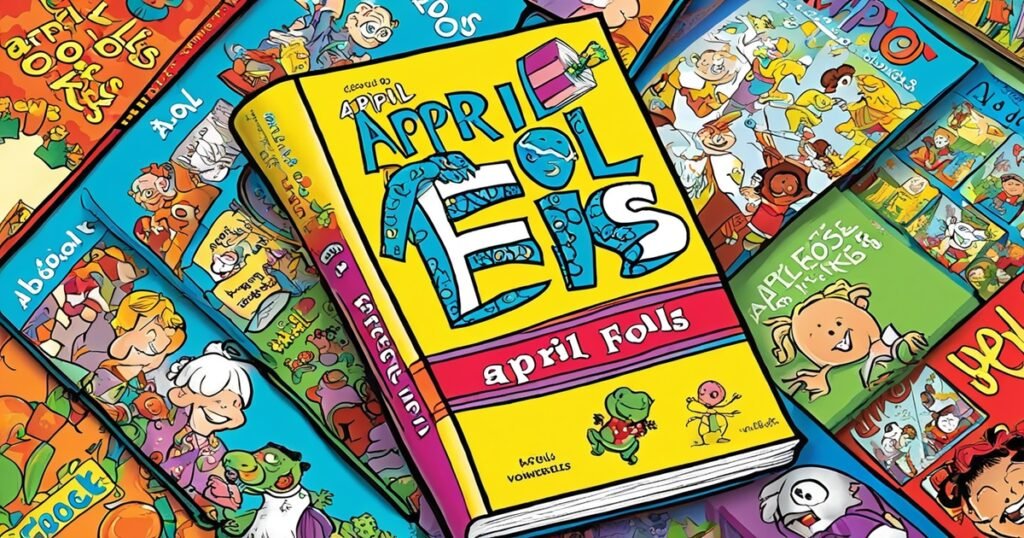The exhilarating and intriguing world of mystery books for 4th graders. They enjoy unraveling the suspenseful storylines, solving the puzzles, and experiencing the thrill, similar to unforgettable journeys through classics such as “Encyclopedia Brown”, “Nancy Drew”, and “The Hardy Boys”.
These narratives, deemed as the best mystery books for 4th graders by their peers on Bookopolis.com, a popular children’s social reading network, are filled with puzzles and riddles that evoke both curiosity and wonder, capturing the hearts of young readers. However, there’s always a need to uncover new must-read mystery books that cater to the adventurous spirit of these young readers. Let’s delve into a curated selection of the top mystery books for 4th graders, designed to quench their thirst for exciting narratives.
Table of Contents
- Key Takeaways
- The Allure of Mystery: Why 4th Graders Love a Good Puzzle
- Book Scavenger: A Modern Quest for Young Readers
- Mystery Books for 4th Graders: A Blend of Classics and New Finds
- Introducing the Sleuths: Dynamic Characters in 4th Grade Mystery Books
- Book Scavenger and its Real-Life Connection
- Age-Appropriate Mystery Books for 4th Graders
- Developing Critical Thinking with Engaging Mystery Books for 4th Graders
- The Top Mystery Books for 4th Graders to Enhance their Reading Experience
- Source Links
Key Takeaways
- Engaging mystery books for 4th graders stimulate their curiosity, fueling their interest in reading.
- Classics like “Encyclopedia Brown”, “Nancy Drew”, and “The Hardy Boys” continue to captivate young readers.
- The selection of the best mystery books for 4th graders features puzzles and riddles that cater to the adventurous spirit of young readers.
- Retaining the interest of young readers necessitates the continual discovery of new top mystery books for 4th graders.
- Children’s social reading networks, such as Bookopolis.com, offer insightful recommendations for must-read mystery books for 4th graders based on peer reviews.
The Allure of Mystery: Why 4th Graders Love a Good Puzzle
The awe-inspiring world of engaging mystery books for 4th graders takes the reading experience to an entirely new level. One significant aspect they conquer is the thirst for suspense and excitement that 4th graders tend to have. The idea that every page turned could change the storyline’s trajectory hooks them into the book, making even the most reluctant readers eager to know what happens next.
These captivating mystery books for 4th graders achieve a challenging feat – making learning fun. Although primarily built to entertain, these books are intellectually stimulating. The puzzles and riddles thrown into the plot stimulate the young minds, facilitating a natural learning process outside the classroom set-up.
“The biggest part of a mystery isn’t the thrill of what will happen next, it’s trying to put the pieces together for yourself.”
Investigating mysteries provokes thought, sparks creativity, and stretches their imaginative boundaries. The readers become part of the story, making their own assumptions and predictions and waiting eagerly to see if they unfold in the plot as they envisioned. This active participation incredibly boosts their cognitive skills by lighting the torch to independent thinking and reasoning.
As they dwell more deeply into these intriguing mysteries, they also develop the patience to piece together clues embedded in the storyline patiently. This journey to resolve the tensions and uncertainties in the mystery books for 4th graders enhances a variety of literary skills, including vocabulary building, understanding plot structure, character analysis, and more.
- Mystery books are enticing: The gripping storylines, twisted plots, and suspense in every chapter in a mystery book are bound to engage anyone, let alone 4th graders with their vivid imaginations.
- They make readers think: Mystery books, especially engaging mystery books for 4th graders, subtly encourage readers to become problem solvers themselves. This not only boosts their problem-solving skills but also enhances their critical thinking ability.
- Mystery books can be educational: Having a mystery to solve can lead to the child turning an otherwise boring study into a fun, intriguing task. With many mystery books tied to subjects like history and science, learning is infinitely more exciting and engaging.
Overall, mystery books offer a wholesome reading experience for 4th graders. They are fun, engaging, suspenseful, and subtly impart valuable skills into young minds. Knowing why our young readers are so fascinated with these mysteries helps us understand their intellectual curiosity better, thus enabling parents, educators, and authors alike to feed this curiosity considerately and effectively. After all, there is no mystery in why we would want to nurture these youthful adventurers’ inquiring minds.
Book Scavenger: A Modern Quest for Young Readers
In the world of modern mystery books for 4th graders, “Book Scavenger” by Jennifer Chambliss Bertman has carved a significant niche. Resonating with young readers, the book weaves an exciting concoction of mystery and puzzle-solving, forging an immediate connect with its audience.
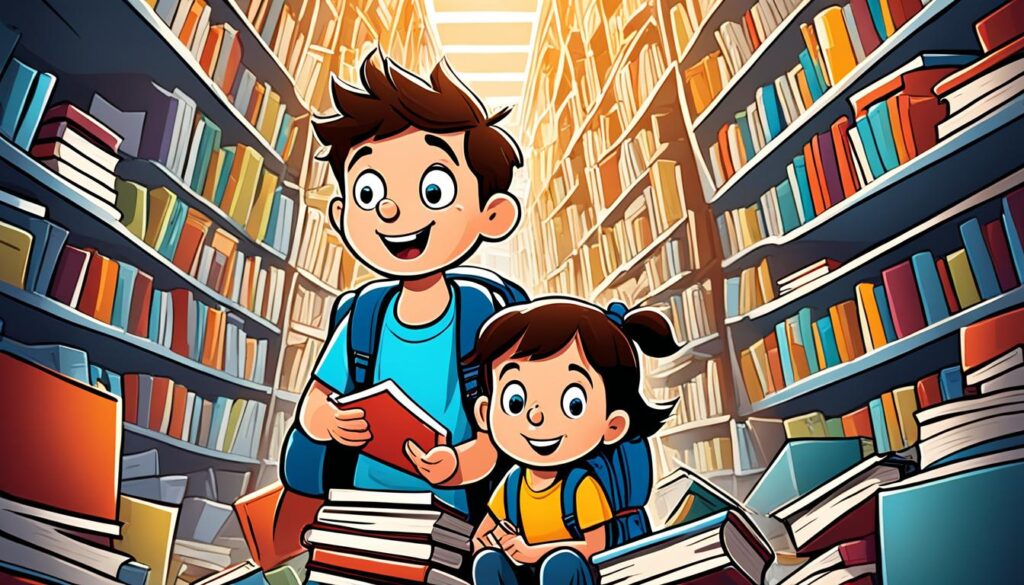
The intriguing narrative journeys alongside Emily and James, characters that embark on an exhilarating adventure traversing San Francisco. Essential to the allure of this narrative is the real-world linkage to a game that invites readers to participate in fantastical hide-and-seek quests involving books.
This immersive appeal of the book escalates the experience beyond the confines of mere recreational reading, stimulating active participation. Touted as one of the most engaging mystery books for 4th graders, “Book Scavenger” effectively creates an absorbing ambiance that holds a reader’s interest, while fueling their imagination.
“Book Scavenger” deftly instills a sense of curiosity and fun, encapsulating all the elements essential to captivating modern-day young readers in the world of mystery books.
Book Scavenger stands out as an innovative exemplar in the genre of mystery books for 4th graders, striking a perfect balance between intrigue, adventure and the pure joy of problem-solving. Its ability to transgress the boundaries between fiction and interactive gaming renders it a unique literary masterpiece for youthful mystery aficionados.
Mystery Books for 4th Graders: A Blend of Classics and New Finds
When it comes to mystery books for 4th graders, the genre offers a blend of established classics and promising new narratives. Both these categories offer numerous educational and classic mystery books for 4th graders. The mix ensures they get the best of both worlds in their reading journey.
Gripping Classics that Stand the Test of Time
Classics like “From the Mixed-Up Files of Mrs. Basil E. Frankweiler” and “The Westing Game”, are examples of popular mystery books for 4th graders that continue to engage young readers through time. Filled with intriguing plots and quirky characters, these novels not only entertain but also impart valuable lessons. They invite the young readers to solve puzzles alongside the protagonists, roping them into the heart of the mystery. These classics represent the very essence of mystery novels, their timeless nature and intricate storytelling making them must-reads within the genre for this age group.
New Favorites on the Mystery Scene
Complementing these timeless classics are new mystery books for 4th graders, which are swiftly finding their place in the hearts of young readers. Books like “Greenglass House” and “Escape from Mr. Lemoncello’s Library” stand out. Both titles have received high praise from young readers and critics alike for their captivating puzzles and adventurous narratives. These contemporary books, while adding fresh perspectives and exciting settings, continue the tradition of inviting 4th graders to decode mysteries and embark on thrilling reading adventures.
| Classic Mystery Books | New Mystery Books |
|---|---|
| From the Mixed-Up Files of Mrs. Basil E. Frankweiler | Greenglass House |
| The Westing Game | Escape from Mr. Lemoncello’s Library |
Introducing the Sleuths: Dynamic Characters in 4th Grade Mystery Books
In exploring the world of thrilling mystery books for 4th graders, we find a rich cast of dynamic characters significantly contributing to the stories’ appeal. These characters, ranging from astute detectives to adventurous protagonists, greatly influence a young reader’s engagement with the narrative, playing an essential role in the book’s overall impact.
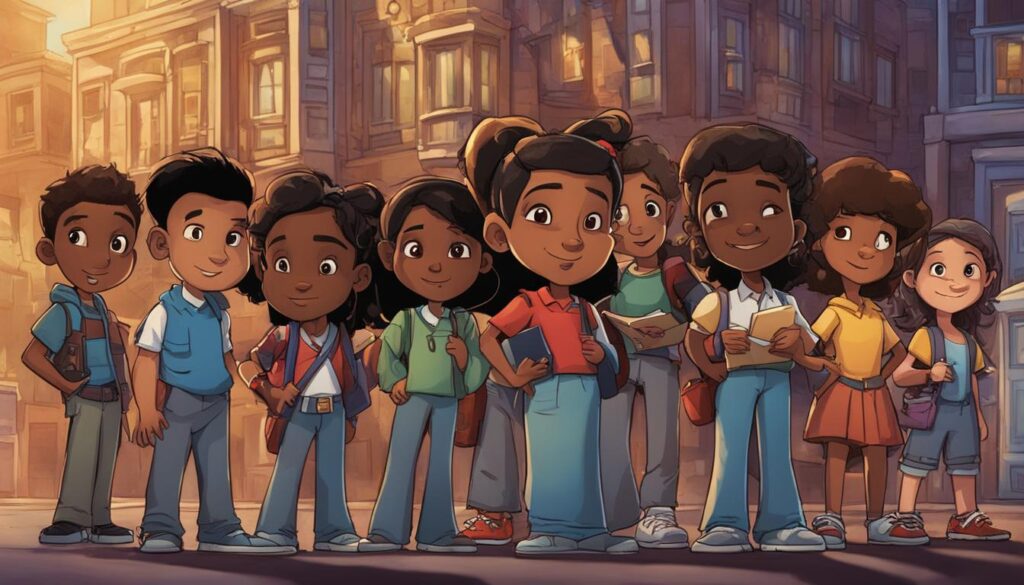
The compelling series “The 39 Clues” presents us with the clever detective duo, Amy and Dan Cahill. Their intelligence and determination in cracking cryptic clues instill a sense of admiration and excitement in the readers, making the duo a memorable entity in children’s literature.
“The 39 Clues” stars the brave siblings, Amy and Dan Cahill, known for their adventurous spirit and deductive abilities. As they globe-trot to unveil hidden family secrets and unearth priceless historical artifacts, young readers often find themselves on the edge of their seats, unable to resist turning the page to find out what happens next.
Concurrently, characters like Max-Ernest from “The Name of this Book Is Secret” blend humor and directness, creating an engaging, multi-dimensional character that adds a stimulating dynamic to his mystery book.
- Amy and Dan Cahill from “The 39 Clues” series
- Max-Ernest from “The Name of this Book Is Secret”
Young readers frequently aspire to the traits of these fictional characters, causing them to become invested in the characters’ development and well-being. As a result, these dynamic characters in children’s literature serve as role models, showcasing resilience, problem-solving, and courage.
| Character | Book Series | Traits |
|---|---|---|
| Amy and Dan Cahill | “The 39 Clues” | Deductive, Adventurous, Brave |
| Max-Ernest | “The Name of this Book Is Secret” | Humorous, Direct, Persistent |
In conclusion, the characters in thrilling mystery books for 4th graders are more than mere companions through exciting adventures. They play significant roles, further enhancing the narratives, making children’s literature more vibrant and inspiring. Whether it be due to their wit, humor, courage, or tenacity, these characters form an integral part of what makes mystery books riveting and memorable.
Book Scavenger and its Real-Life Connection
The interactive children’s book “Book Scavenger” stands apart due to its ingenious inclusion of real-life puzzles. This impressive integration of fiction and reality in children’s literature offers an immersive reading experience for children, particularly interesting to 4th graders who are at an exploratory stage in their reading development.
Encouraging Interactive Reading through Puzzles
“Book Scavenger” takes the traditional concept of a children’s book and transcends it into a multi-dimensional, interactive reading experience. The book is more than just a story; it encourages puzzle-solving and exploratory learning amongst children as they journey through the story’s plot. Enriched with a sequence of clues and riddles, the book enables children to decode, decipher, and delve deeper into the narrative, enhancing their cognitive skills and stimulating their curiosity.
The Blending of Fiction and Reality in Children’s Books
Fostering a direct connection between reader and storyline, “Book Scavenger” offers an innovative take, blurring the lines of fiction and reality in children’s literature. Readers are not just passive recipients of a narrative but active participants in the unfolding of the book’s mystery. In this way, children become an integral part of the story, engaging them in a richer, immersive reading experience that extends beyond the confines of the printed page.
| Book Title | Author | Key Feature |
|---|---|---|
| Book Scavenger | Jennifer Chambliss Bertman | Real-life puzzle game integrated into the plot |
| The Secret Keepers | Trenton Lee Stewart | Codes and ciphers in an antique watch |
| Escape from Mr. Lemoncello’s Library | Chris Grabenstein | Interactive library puzzle |
Note how each of these puzzle mystery books for 4th graders successfully unites the excitement of adventure with the intellectual stimulation of problem-solving, offering an interactive and immersive reading experience for children.
Age-Appropriate Mystery Books for 4th Graders
When it comes to piquing the interest of young readers, particularly 4th graders, it’s crucial to hand them books that are not only engrossing but also age-appropriate. The selection of age-appropriate mystery books for 4th graders ensures the content is both relatable and suitable for their developmental level.

Certain books, such as “The Secret Lake” and “Bunnicula”, are exceptional examples of this. They provide just the right balance of suspense and humor, offering narratives that are engaging yet easily understandable for 9 to 10-year-olds.
Let’s take a deeper delve into these age-appropriate mysteries that are perfect for 4th graders:
| Book title | Author | Description |
|---|---|---|
| The Secret Lake | Karen Inglis | A time-travel mystery adventure where Stella and Tom, upon moving to a new home, discover a mysterious secret lake that transports them to their home and its inhabitants, 100 years prior. |
| Bunnicula | James Howe | A humorous mystery about a vampire rabbit who sucks the juice out of vegetables. The story is told from the perspective of the family dog, and it’s a charming and funny tale that 4th graders will love. |
Reading these age-appropriate mystery books for 4th graders will not only entertain young readers but will also stimulate their problem-solving abilities. Seeing heroes and heroines of their age unravel mysteries can help them perceive issues from various angles while having a fun reading time.
Developing Critical Thinking with Engaging Mystery Books for 4th Graders
As our journey into the world of educational mystery books for 4th graders continues, we delve into how these captivating tales promote cognitive development in children. With exciting storylines that encourage readers to unravel clues and resolve puzzles, these mystery books indeed teach problem-solving skills while providing an enjoyable reading experience.
How Mystery Books Promote Problem-Solving Skills
Enthralling mystery books like “Framed!” and “Mystery in the Mansion” push young minds to analyze situations, signs, and evidence. These narratives involve young detectives solving puzzles, challenging their minds to apply logical reasoning and deduction. It allows readers to take on the thinking process of the characters, thereby developing their problem-solving capabilities organically.
The Educational Benefits of Reading Mysteries
The merits of delving into mystery books transcends entertainment. Not only do these stories emphasize the importance of critical thinking in children’s literature, but they also introduce young readers to different perspectives, encourage open-mindedness, and inspire them to form their hypotheses based on the clues provided in the narrative.
Mystery books for 4th graders, therefore, serve as an essential tool in facilitating the improvement of analytical and observational skills in children:
| Benefits of Reading Mystery Books | Examples |
|---|---|
| Promotes critical thinking and problem-solving | “Framed!” by James Ponti, “Mystery in the Mansion” by Martin Widmark |
| Improves observational skills | “The Secret Keepers” by Trenton Lee Stewart, “Spy School” by Stuart Gibbs |
| Enhances analytical abilities | “Greenglass House” by Kate Milford, “Escape from Mr. Lemoncello’s Library” by Chris Grabenstein |
Introducing 4th graders to mystery books cast in stimulating and age-appropriate narratives can significantly contribute to their cognitive development, making the genre an excellent choice for young readers eager to learn and explore.
The Top Mystery Books for 4th Graders to Enhance their Reading Experience
The realm of literature is filled with top mystery books for 4th graders that seamlessly merge education with entertainment. These books, encompassing well-loved titles such as “The Mysterious Benedict Society” and “Spy School”, engage young readers with their enthralling storylines and unforgettable characters.
The magic lies in the puzzles woven into their narratives, presenting challenges that keep children hooked while fostering their cognitive development. These books do more than just tell a story – they invite the readers into a world of mystery and encourage them to become active puzzle-solvers alongside their favorite characters.
Indeed, these must-read mystery books for 4th graders serve as a catalyst for developing a love for reading. As the young readers navigate the twists and turns of plots, solve intricately designed riddles, they are bound to nurture a deeper appreciation for literature and a thirst for more mystery-filled adventures.
FAQ
What are some of the top mystery books for 4th graders?
Some of the top mystery books for 4th graders include “Book Scavenger” by Jennifer Chambliss Bertman, “From the Mixed-Up Files of Mrs. Basil E. Frankweiler” by E.L. Konigsburg, “The Westing Game” by Ellen Raskin, “Greenglass House” by Kate Milford, and “Escape from Mr. Lemoncello’s Library” by Chris Grabenstein.
Why are mystery books engaging for 4th graders?
Mystery books are captivating for 4th graders because they provide mental stimulation through puzzles and crimes that need solving. They promote problem-solving and critical thinking skills, encouraging children to form hypotheses and draw conclusions.
Are there any modern mystery books that 4th graders might enjoy?
Yes, there are modern mystery books such as “Book Scavenger” by Jennifer Chambliss Bertman, “Escape from Mr. Lemoncello’s Library” by Chris Grabenstein, and “The Secret Keepers” by Trenton Lee Stewart that are highly regarded by young readers.
Are classic mystery books still popular with young readers?
Absolutely, classics such as “From the Mixed-Up Files of Mrs. Basil E. Frankweiler”, “The Westing Game”, and “The 39 Clues” series continue to captivate young readers with their intricate plots and memorable characters.
Why is it important to choose age-appropriate mystery books for 4th graders?
Age-appropriate mystery books ensure the content is suitable and relatable for a 4th grader’s developmental stage. Books that supply age-appropriate suspense and humor are both entertaining and understandable for them.
How do mystery books help in developing critical thinking in children?
Mystery books often involve young detectives who solve puzzles and crimes. As readers, children are inspired to apply similar logical reasoning and deduction in their daily lives, hence promoting critical thinking skills.
Are there educational benefits of reading mystery books for 4th graders?
Yes, engaging with mysteries facilitates the development of analytical and observatory skills. This encourages readers to form hypotheses and draw conclusions based on evidence presented in the narrative, promoting an understanding of scenario analysis and hypothesis testing.
What character traits can children learn from mystery book protagonists?
Characters in mystery books often showcase problem-solving, courage, resilience, and more while engaging in thrilling adventures and unraveling complex mysteries. These positive traits can inspire children and serve as relatable role models.
